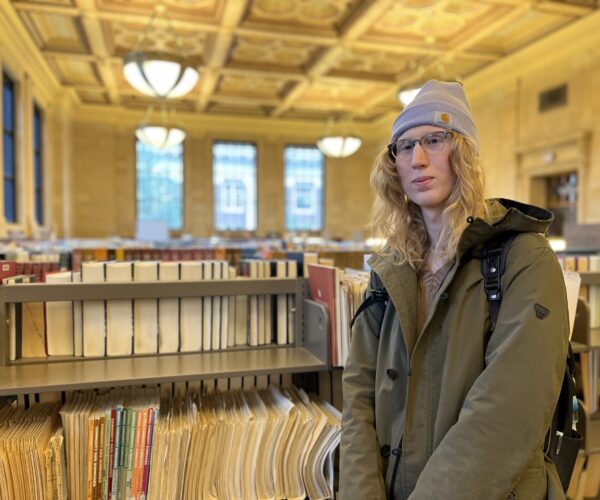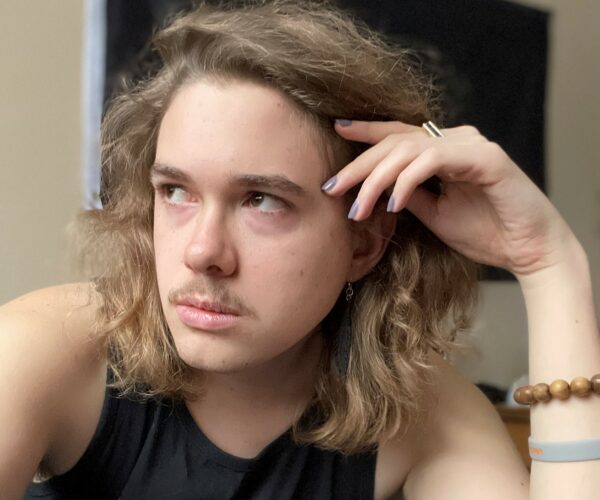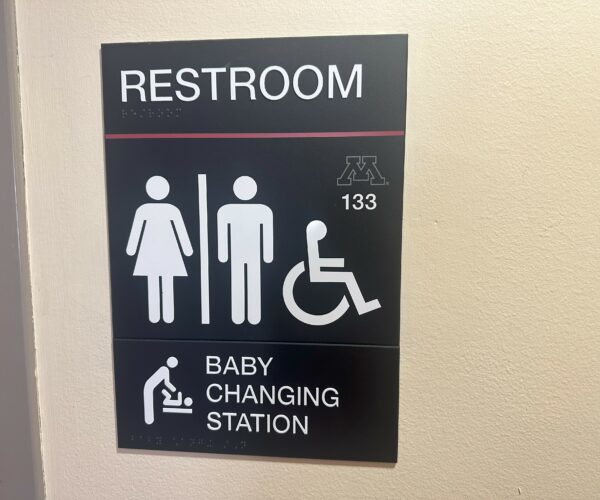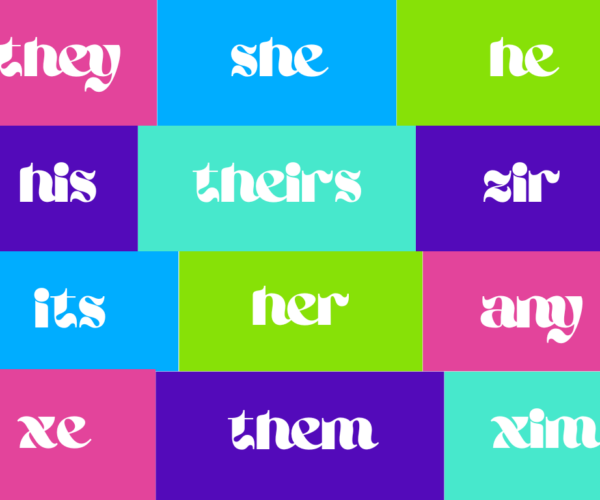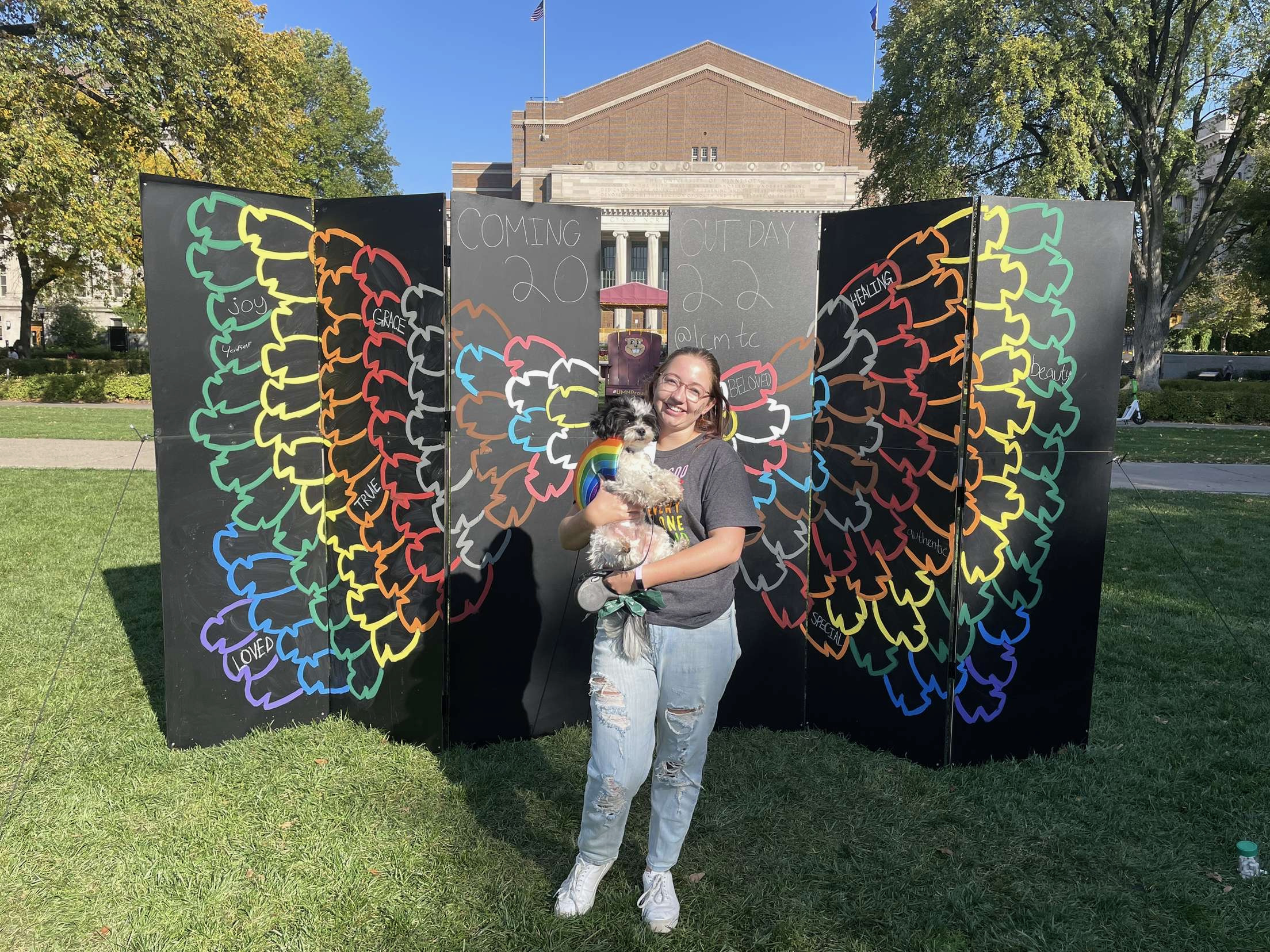By Victoria Schutz
Being queer usually means being excluded from Christian spaces. Lutheran Campus Ministry – Twin Cities (LCM-TC) is working to show University of Minnesota students that queer-affirming Christian groups exist and truly welcome all who come through its doors.
“Anyone can be involved in any aspect of our ministry if they are queer, which is not always the case in other faith communities,” Programs and Outreach Coordinator Dana Rademacher Hansen said.
LGBTQ+ members are allowed to hold leadership positions and staff positions in LCM-TC. The ministry’s pastor, Kate Reuer Welton, performs wedding ceremonies for queer couples as well, according to Rademacher.
“I talk about that all the time, just how radical it is to be queer in the church and to take up space in it,” Rademacher said. “For so long, we were told, ‘This space isn’t for us, this tradition isn’t for us, scripture isn’t for us; it’s actually actively against us.’ And then, to reclaim that and to say: ‘I actually am gonna take up space here. This is my tradition, and you can’t take it away from me.’”
Rademacher, who identifies as queer and uses she and they pronouns, discovered LCM-TC while attending the University in 2012 as a first-year student majoring in public relations. She was involved in the ministry for all four years until graduating, and she returned to work on staff in January 2020.
LCM-TC also hosts a queer Bible study each week on Mondays at 6 p.m., Rademacher said.
“It’s an LGBTQ+ only space where we can talk about scripture and queerness and faith,” Rademacher said. “It’s kind of this safe community of people who experience similar things and have often experienced a lot of hurt by the church too.”
Megan Schoenbauer, a third-year nursing student with a minor in gender, women and sexuality studies, said she found this community in October 2020 and has always felt welcomed and accepted by LCM-TC as a queer person.
“It has been really helpful and healing for me,” Schoenbauer said. “Growing up Catholic, it was not really a welcoming space for queer people. This church has helped me reconcile that and heal faith-wise.”
LCM-TC has previously held events featuring queer Christian speakers who have addressed queer issues and the connections between spirituality and identity, according to Rademacher.
Rademacher and Schoenbauer both recalled National Coming Out Day during fall semester, saying they did public blessings for queer people on campus.
“I think a lot of people, when they see a church doing something around gender and sexuality and queerness, there’s some skepticism, which I think is valid and right,” Rademacher said. “I think one of the more important parts of our ministry is that people know there is a community on campus that does celebrate queerness, and if someone is looking for that, it exists.”
Schoenbauer describes LCM-TC as a transparent group that is true to their words and encourages other queer people to find the affirming spaces that work for them.
“It’s easy for any church group to say ‘all are welcome’ and to not truly follow through with that statement. This ministry doesn’t just accept people who are queer. They will celebrate your identity with you,” Schoenbauer said.
Schoenbauer said no one expects those who have been harmed in the past to return easily to Christian spaces, even theirs.
“If you’re looking for a queer affirming space, you will find that here, but because the church has done so much harm to queer people in the past, there are some people who will never return, and that’s absolutely fine,” Schoenbauer said. “There is no pressure, and everyone heals in different ways.”
